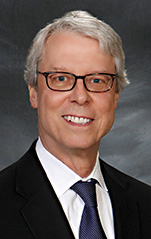Using Subnational Diplomacy to Combat Climate Change
Des Moines’ mayor connects the dots between work at the local level in America and effective global climate leadership.
BY FRANK COWNIE
What Is ICLEI?
ICLEI–Local Governments for Sustainability, which was founded in 1990 as the International Council for Local Environmental Initiatives, is a network of local and regional governments committed to sustainable urban development that advances international goals and holds leaders accountable for planning, action and reporting.
The organization is committed to solving the world’s most intractable sustainability challenges. The standards, tools and programs offered by ICLEI provide credibility, transparency and robustness to communities that have committed to reduce greenhouse gas emissions, improve the lives and livelihoods and protect natural resources in the communities the organization serves.
Des Moines’ partnership with ICLEI Global and ICLEI USA has been instrumental as we navigate the pandemic and work to move our city’s climate action forward. The staff at ICLEI USA has provided planning resources and technical expertise to maintain momentum in the face of logistical, technical and political challenges. ICLEI represents the voice of countless subnational governments around the globe.
Foreign Service professionals can look toward ICLEI, and the local governments that participate as members, as a resource for ideas; as partners in progress; and as passionate leaders in the fight to address climate change and limit global warming to 1.5 degrees Celsius.
—Frank Cownie
The Intergovernmental Panel on Climate Change report released in August 2021 is clear. We have no more time to wait. The drastic effects of climate change are fueling catastrophic weather events around the globe. As the mayor of Des Moines, Iowa, I know that these threats and the challenges they present for my community are very real and unavoidable.
In 2020 a straight-line windstorm called a derecho, equivalent in strength to a Category 4 hurricane, caused severe damage across Des Moines and throughout much of Iowa. Residents and businesses were without power, in some cases for more than a week, while others dealt with damage to buildings from high winds or downed trees. Just two years before, massive flooding followed 5-10 inches of rain that fell within a five-hour period, inundating the city, washing away vehicles and overwhelming stormwater infrastructure.
American cities are not alone in this experience. Local (subnational) governments around the world are dealing with their own challenges from heat waves, wildfires, sea level rise and other events. Many of you probably have seen firsthand the effects of climate change, some perhaps more severe, where you live or have been posted. The science is clear: These ordeals are a real and present threat and will become more frequent. And, as a cascading effect, there will be more requests from foreign entities for the U.S. diplomatic service to address climate change.
U.S. diplomats are the front line of America’s civilian presence abroad. Members of the Foreign Service have sway in influencing the global dialogue over climate, disaster recovery and refugee resettlement. That is as crucial as ever if America is to be regarded as a climate leader in the 21st century.
Leveraging Local Voices
As president of ICLEI (Local Governments for Sustainability) Global, I am committed to working with leaders around the globe to leverage the voices of local governments, and the communities they serve, to combat climate change and to enable the transition to a cleaner future. I’ve joined Google, the Government of Iceland and other global partners in the United Nations’ 24/7 Carbon-Free Energy Compact. I encourage our diplomats to consider how they can drive more corporate, nongovernmental organizations (NGOs) and government partners to join this compact. A focus on 24/7 carbon-free energy can transform energy generation and delivery around the world and provide accountability and clarity toward how much progress we are making in the transition to clean energy in line with global agreements.
With so many cities on the rise in emerging countries around the world, there is an opportunity to solve problems the right way from the start, to learn from both the successes and mistakes of other cities, and to lead with innovation and grassroots initiatives. ICLEI can provide feedback and insight to Foreign Service professionals about programs, projects and initiatives that we’ve already implemented. We can share the successes we’ve achieved and the challenges we’ve faced so that your teams can offer better insights and guidance for policy and programs and developing nations can, in turn, achieve success, ideally at a faster pace than we’ve accomplished so far.
We know that our efforts toward sustainability make the biggest impact when subnational, national and international governing bodies all work together, but we also know that we need the right tools to act. ICLEI provides easily accessible toolkits and technical guidance to help communities get started addressing sustainability and climate challenges. Foreign Service professionals should work to understand these tools, and the uniform reporting requirements most local governments have committed to, so that they can adapt policies and tools to meet the needs of ICLEI members to address our climate change commitments. Nationally these include the Biden administration’s targets to achieve 100 percent carbon-pollution-free electricity by 2035, and net-zero greenhouse gas emissions by 2050. Internationally, goals and targets have been identified through the Paris Agreement and subsequent U.N. Climate Change Conferences, most recently COP26 in Glasgow.
At the local level, we are demonstrating our ability to decisively act and develop measures to combat climate change.
Connecting with and garnering support from Americans is critical to successfully implementing a national climate strategy. Many of our community members throughout the country, and especially in the Midwest, have little if any engagement with city-based think tanks and the ideas they offer. But achieving a future free of fossil fuels and emissions doesn’t make good sense only for metropolitan areas. It can drive new economic growth and strengthen local social systems and support networks in all places, even rural Iowa. Being able to partner with NGOs and multilateral institutions more directly, the State Department can open opportunities for local governments to guide investments from, say, the International Food Policy Research Institute or the International Renewable Energy Agency into our neighborhoods, into good-paying local jobs, into more resilient infrastructure.
We also need to ensure that we are not leaving behind workers in legacy industries or those in smaller cities and rural areas. The connections our Foreign Service has to foreign business entities can unlock new partnerships in regions that have been neglected or underutilized.
A Rare Opportunity
A growing number of scholars, think tanks and legislators are realizing the need for improved transnational relations between local governments and foreign entities. At the local level, we are demonstrating our ability to decisively act and develop measures to combat climate change. We need to have better tools at the local level to work with global partners who share similar concerns, and passage of the City and State Diplomacy Act would enable that.
The people we serve as leaders of local governments are our greatest resource to enable the inclusive and equitable social shift we must make. Residents, local businesses and, especially, those community members most vulnerable to climate change must have a voice in the process and be part of the solution. Enabling Foreign Service officers to be on the ground learning and interacting in our local communities throughout the United States will help local governments develop their global ties and allow mayors and governors to strengthen U.S. alliances through partnerships and cooperation.
As a progressive local leader in a historically conservative region of the United States, I’ve experienced my own share of challenges convincing my local and regional peers to move forward on climate change and sustainability. That tide is shifting. We now have a rare opportunity in which global, national and local momentum are aligning to overcome what is arguably the greatest existential threat to humankind. We must work collectively to harness this energy for the benefit of all Americans.
Read More...
- “Cities & COP26 Negotiations,” by Geneva Environment Network, December 16, 2021
- “Negotiators Strike a Climate Deal, but World Remains Far From Limiting Warming,” by Brad Plumer and Lisa Friedmanby, The New York Times, November 13, 2021
- “Subnational Diplomacy, Climate Governance, and Californian Global Leadership,” Benjamin Leffel, USC Center for Public Diplomacy, March 2018




